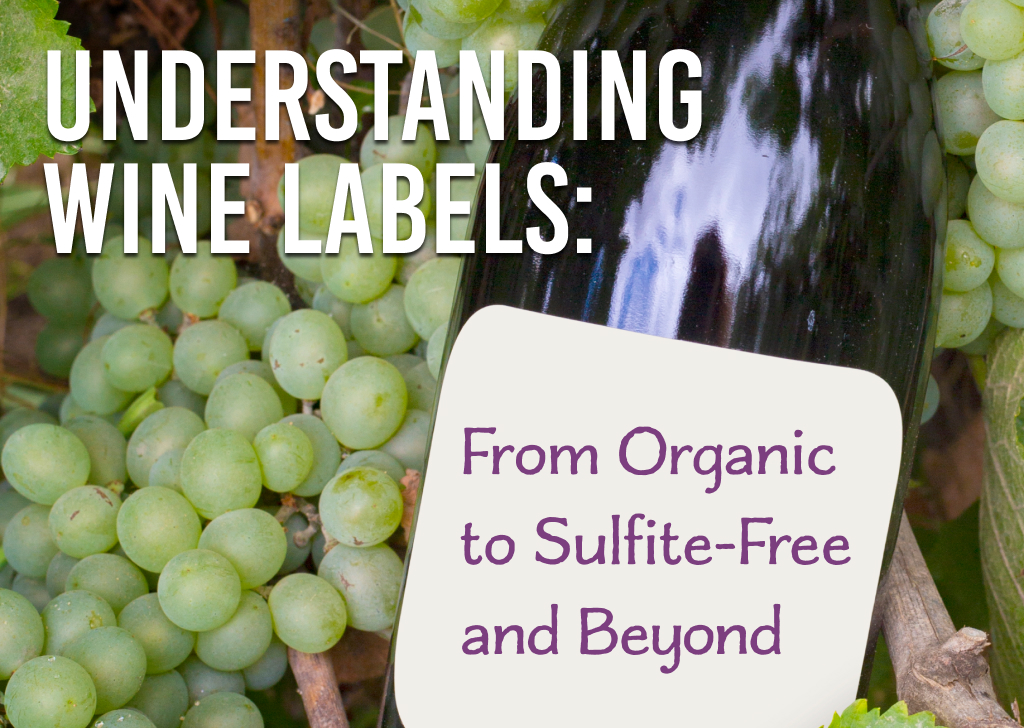The wine industry is transforming, with winemakers and connoisseurs increasingly valuing sustainability, ethical production, and mindful consumption. This evolution is evident in the rising demand for wines that are exceptional in taste and conscious in creation, including organic, kosher, vegan, biodynamic, and sulfite-free varieties. These terms, far from being mere marketing gimmicks, symbolize a deep commitment to environmental stewardship, cultural respect, dietary inclusivity, and holistic health. They paint a picture of a wine world that cherishes the earth and its inhabitants, offering products that align with a broad spectrum of consumer values. Join us as we uncork the significance behind these labels, exploring how they shape the journey of wine from the vineyard to your glass and why they matter to today’s informed buyers.
Organic Wines: Purity from Vine to Bottle
Organic wines stem from the philosophy that great wine starts with healthy vineyards. To qualify as organic, vineyards must forgo synthetic pesticides and fertilizers, relying instead on natural methods to nurture their vines. This approach ensures that the wine you drink comes from grapes grown harmoniously with the environment. The organic label isn’t just about what’s absent from the winemaking process—it’s also about what’s present. These wines offer a taste of the vineyard’s true character, free from the influence of chemical additives. Brands like Bonterra emphasize dedication to enhancing the earth through regenerative organic practices, showcasing a deep commitment to sustainability and environmental stewardship. This approach benefits the planet and leads to cleaner, more authentic flavors in your glass.
Kosher Wines: Tradition in Every Sip
Kosher wines are produced in accordance with Jewish dietary laws, involving specific guidelines that extend from the vineyard to the bottle. These rules ensure that every step of the winemaking process, from fermentation to bottling, is overseen by a qualified supervisor, maintaining the wine’s purity and adherence to tradition. Contrary to some misconceptions, kosher wines are not just for religious occasions—they’re for anyone interested in wines made with a meticulous eye for quality and tradition. Today’s kosher wines are diverse and sophisticated, offering something for every palate while staying true to their heritage. Options like Recanati Winery, established in 2000, aim to produce distinctive, high-quality Israeli wines that fully express the local terroir, reflecting a dedication to creating wines that are both local and original, embodying the essence of their unique environment.
Vegan Wines: Ethical Elegance
Vegan wines are crafted without the use of animal-derived products, which are traditionally used in clarifying wines. Instead, winemakers may opt for plant-based fining agents or choose to let the wine naturally settle over time. This ensures that the final product aligns with vegan principles, avoiding any animal harm in the process. Choosing a vegan wine means supporting winemaking practices that are considerate of animal welfare. It also opens up a world of wines that are thoughtful in their creation,
offering a guilt-free option for those looking to align their dietary choices with their environmental and ethical values.
Biodynamic Wines: Harmony with the Cosmos
Biodynamic wines take organic practices a step further, integrating principles of biodynamic agriculture that treat the vineyard as a self-sustaining ecosystem. This method is based on Rudolf Steiner’s teachings, emphasizing the importance of astrological influences and lunar cycles on agricultural practices. Biodynamic winemaking involves using natural composts, avoiding synthetic chemicals, and following a planting calendar that aligns with the moon’s phases. The result? Wines that are not only environmentally friendly but are also said to offer a deeper expression of the vineyard’s terroir. Biodynamic certification ensures that these wines meet rigorous standards, from the health of the soil to the energy used in production, offering a holistic approach to winemaking that respects the interconnectedness of nature and the cosmos.
Sulfite-Free Wines: Natural Purity
Sulfite-free wines address concerns about sulfites, compounds commonly used in winemaking for their preservative qualities. While sulfites occur naturally in all wines, additional sulfites are often added to inhibit microbial growth and preserve freshness. However, a growing number of consumers, particularly those sensitive to sulfites, seek wines with minimal or no added sulfites. Wines labeled as sulfite-free have no added sulfites, although they may still contain naturally occurring sulfites at low levels. These wines offer a pure, unadulterated tasting experience and are often appreciated for their natural expression of the grape and terroir. Opting for a sulfite-free wine means choosing a product that emphasizes minimal intervention in the winemaking process, appealing to those looking for a wine that is as close to its natural state as possible.
A New Era of Wine
As the wine industry continues to evolve, the significance of labels like organic, kosher, vegan, biodynamic, and sulfite-free grows. These specifications are more than just certifications; they are reflections of a winemaking philosophy that values health, tradition, ethical considerations, and environmental stewardship. Understanding these labels empowers consumers to make informed choices that align with their values and preferences, ensuring that each bottle of wine offers a sensory delight and peace of mind. As we embrace this new era of conscientious winemaking, we find ourselves part of a global community that appreciates the finer nuances of wine and is rooted in respect for the earth and its bounty.

